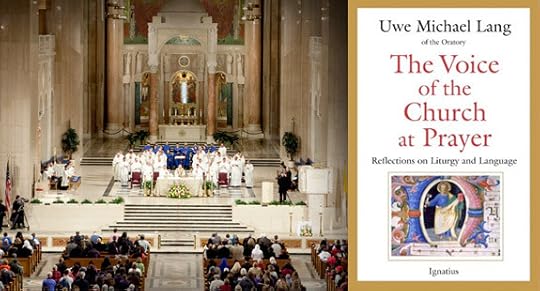Hastening the Reform of the Reform; or, the End of Clown Masses

Hastening the Reform of the Reform; or, the End of Clown Masses | Joanna Bogle | Catholic World Report
A new book on Latin and the liturgy stresses the importance of continuity, not contentious campaigning.
The Incarnation did not happen silently. The Angel Gabriel spoke to Mary, and she heard and responded. There were actual words, a dialogue using voices.
In the very beginning of all things, God used words. He spoke, and things came into being: “Let there be light.” And Christ is the eternal Word, the Word made flesh who came to dwell among us. At every Mass, the priest uses words, Christ’s own words, and Christ comes to dwell among us: the Word made flesh.
The gift of speech is one of God’s greatest gifts to us: the gift of languages is one of the things that makes us different from the rest of God’s creation, that distinguishes us as human beings and reminds us that we are made in the image of God.
In recent decades, especially in the English-speaking world, the words used in the Church’s sacred liturgy have been miserably inadequate for the glory of their task. Of course, the words have fulfilled their required purpose—as a bleak, ill-decorated church is adequate for Mass and provides protection from the weather for the Holy Sacrifice. But the very nature of the Mass, and the nature of human beings created to worship God, requires something better than that.
Now Father Uwe Michael Lang has examined all of this in a readable book exploring the subject of words, language, and liturgy. The Voice of the Church at Prayer: Reflections on Liturgy and Language (Ignatius, 2012) could not have come at a more opportune time: the new Mass translation—already it does not feel so new—is in use in parishes across the English-speaking world, the “reform of the reform” is well under way, the debates and discussions over liturgy have matured and are better informed than for many years passed, and the younger generation of priests is one that seeks authenticity, reverence, and beauty in the celebration of the sacred mysteries.
Carl E. Olson's Blog
- Carl E. Olson's profile
- 20 followers



